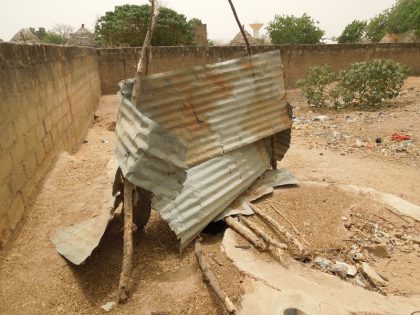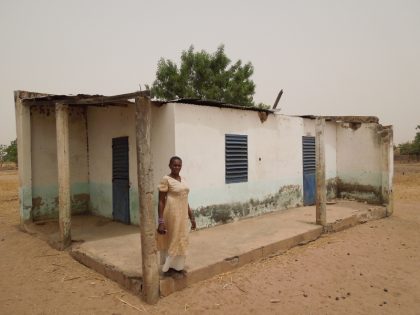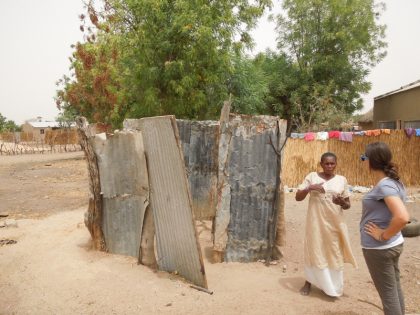 Location
Location
Tanda Mboudaye, Kaolack, Senegal
Community Description
The community is an ethnically Serere village, with some Wolof, Pulaar, and Bambara families. There are 66 households and approximately 900 people. It is a Muslim village, with one or two Catholic households.
Tanda Mboudaye is largely a subsistence farming village, the main export of which is peanuts. There is no electricity or running water, and the village is located about 5 km from a paved road.
Engineers Without Borders (EWB) will be starting a large five-year program for providing latrines in the village. However, it will take almost a year for the preparations to be made and for the project to begin.
 Project Description
Project Description
This project is to build 10 latrines in the village.
The project will be overseen by the Health and Hygiene Committee, and will engage the work of several village masons.
The committee will choose the 10 locations based on a completed comprehensive latrine survey, evaluating whether households have a latrine, or access to one, the state of that latrine, and the number of people in the household. These factors will all be taken into account, including the geographic distribution of the latrines throughout the village.
The latrines will be 2 m x 2 m in size, and dug by individual household members to the appropriate depth to ensure that they will serve for an extended period, but also not contaminate the underground water.
 Each latrine will be lined with cement bricks, which will be manufactured on-site.
Each latrine will be lined with cement bricks, which will be manufactured on-site.
The platforms will be made by the masons using rebar and cement.
PVC piping will provide aeration and will be covered with mesh to prevent increased mosquito presence.
The enclosures will be provided by the households and will include a variety of materials, mostly sacket (millet stalks) and zinc sheeting.
Water Charity funds will be used to purchase materials, including the labor cost for the bricks.
Mason fees will be covered by the individual households. Households will also contribute labor (digging the hole) and some locally available materials (water & sand).
The standards that are being set up for the EWB project will be followed, in terms of pricing, materials & design, labor, and community contribution, in order to keep the precedent stable. In addition, a monitoring and evaluation system will be developed and implemented.
In conjunction with this project, the local health workers will conduct trainings in proper hygiene and maintenance practices.
Project Impact
This project will benefit the entire village, numbering close to 900 people.
Peace Corps Volunteer Directing Project
Aimee Constantineau
Comments
Latrines throughout the village will improve the hygiene and sanitation in the community, resulting in large-scale public health benefits.
The project will enable and become the prototype for the EWB program. It will make it possible to implement and test the development concepts prior to the start of the larger program.
In addition to providing needed latrines, it will serve to establish procedures, train skilled participants, work up a supply chain, evaluate techniques, and make changes to optimize the output of the EWB program to follow.
Dollar Amount of Project
$555.00
Donations Collected to Date
$555.00
Dollar Amount Needed
$0.00 – This project has been funded through the generosity of the Elmo Foundation, in the amount of $450.00, and Susan Smith, in the amount of $105.00
We encourage others to continue to donate using the Donate button below, and we will notify Aimee of your donation. Additional funds will be used to fund the next project by Aimee and/or those of other PCVs in the country of service.